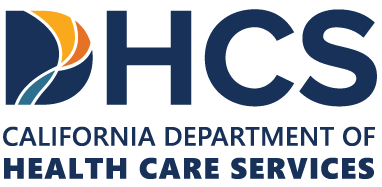California Launches Free Digital Behavioral Health Platforms for Children and Families
California Launches Free Digital Behavioral Health Platforms for Children and Families
WHAT YOU NEED TO KNOW: Launching as a part of the state’s CalHOPE program, with funding from the CYBHI, the web- and app-based platforms will offer all California families with kids, teens and young adults ages 0-25, free one-on-one support with a live wellness coach, a library of multimedia resources, wellness exercises, and peer communities moderated by trained behavioral health professionals to ensure content is appropriate and safe for all users.
SACRAMENTO, Calif.--(BUSINESS WIRE)--The Department of Health Care Services (DHCS) today launched the Behavioral Health Virtual Services Platform – two free behavioral health services applications for all families with kids, teens, and young adults ages 0-25. The platform is a cornerstone of Governor Gavin Newsom’s Master Plan for Kids’ Mental Health and the Children and Youth Behavioral Health Initiative (CYBHI).
“Kids, teens, and young adults are facing a mental health crisis. To make sure our youth have another path to access needed behavioral health services, the state is launching two new apps to give young Californians and their caregivers access to the professional help they need,” said DHCS Director Michelle Baass. “The tools are flexible and free for all California families, regardless of income, health insurance, or immigration status. I urge every young person and parent in California to visit the Soluna and Brightlife Kids apps to see if they are right for them.”
WHY THIS IS IMPORTANT: Nationwide, rates of anxiety, depression, and self-harm are climbing. Between 2019 and 2021, about one-third of California adolescents experienced serious psychological distress, with a 20 percent increase in adolescent suicides. Meanwhile, the nationwide mental health provider shortage is causing longer wait times for appointments to community-based mental health providers. Availability is particularly limited among the uninsured, people of color, people with low incomes, and people with disabilities.
“About two-thirds of California kids with depression do not receive treatment. This platform will help meet the needs of California’s diverse children, youth, and families by expanding access to critical behavioral health supports. Our young people will have an accessible option to get the help they need,” said Dr. Mark Ghaly, Secretary of the California Health & Human Services Agency. “The Behavioral Health Virtual Services Platform will give children, adolescents, and young adults a new point of access to high quality services to help them address behavioral health challenges early on, reducing the likelihood of escalation to more serious conditions and alleviating pressure on existing mental health care providers.”
ABOUT THE NEW APPS: Because kids and young adults have dramatically different needs by age group, the Behavioral Health Virtual Services Platform is a combination of two different web and app-based applications that support two distinct groups: BrightLife Kids, developed by Brightline, is for parents or caregivers and kids 0-12 years old. Soluna, developed by Kooth, is for teens and young adults ages 13-25. Families with multiple children whose ages span 0-25 can use both platforms to meet their unique needs. Each app will also offer coaching services in English and Spanish, as well as telephone-based coaching in all Medi-Cal threshold languages.
- Free Coaching: Live one-on-one coaching sessions with a trained and qualified behavioral health wellness coach delivered through in-app chat or video appointments. Telephone coaching will also be available in all Medi-Cal threshold languages.
- Educational Content: Age-tailored educational articles, videos, podcasts, and stories.
- Assessments and Tools: Stress-management tools and clinically validated assessments to understand and monitor behavioral health over time.
- Care Navigation Services: A searchable directory and live care navigation support to connect users to their local behavioral health resources, including connecting users with their health plan, school-based services, or community-based organizations that can provide clinical care options and care coordination services.
- Peer Communities: Moderated forums and programs to connect users with other youth or caregivers.
- Crisis and Safety Protocols: Crisis and emergency safety resources for platform users experiencing a mental health crisis or who require immediate assistance (e.g., 988).
These new CalHOPE applications will complement existing services offered by health plans, counties, and schools by providing additional care options and resources for parents and caregivers, children, youth and young adults in California.
Both apps must meet accessibility requirements and have strict privacy and confidentiality requirements and must adhere to all applicable state laws and regulations pertaining to privacy and security. Each app will also follow robust safety and risk escalation protocols to ensure the safety of children, youth, and young adults using the apps. Trained behavioral health professionals will monitor app usage to identify potential risks, and licensed behavioral health professionals will be on standby to intervene, if clinically appropriate. Further, each app will connect users to crisis or emergency services, when needed.
WHERE TO FIND THE APPS: BrightLife Kids is available for download on IOS devices in the Apple App Store and will be available for Android devices in mid-2024; it is also available online at CalHOPE.org. Soluna is available for both IOS and Android devices in the Apple App Store and Google Play Store. To find out more, visit CalHOPE.org.
BIGGER PICTURE: CYBHI is an important component of the Governor’s transformation of California’s mental health system. The strategies that the CYBHI is implementing, including the launch of the Behavioral Health Virtual Services Platform, are laying the foundation and developing the infrastructure to support a more coordinated, youth-centered, equitable, prevention-oriented, and accessible system, one in which young people can find the support they need when, where, and in the way they need it most. Learn more about Governor Newsom and First Partner Jennifer Siebel Newsom’s “Mental Health Movement” for California.
Contacts
For more information:
Anthony Cava, DHCSPress@dhcs.ca.gov
